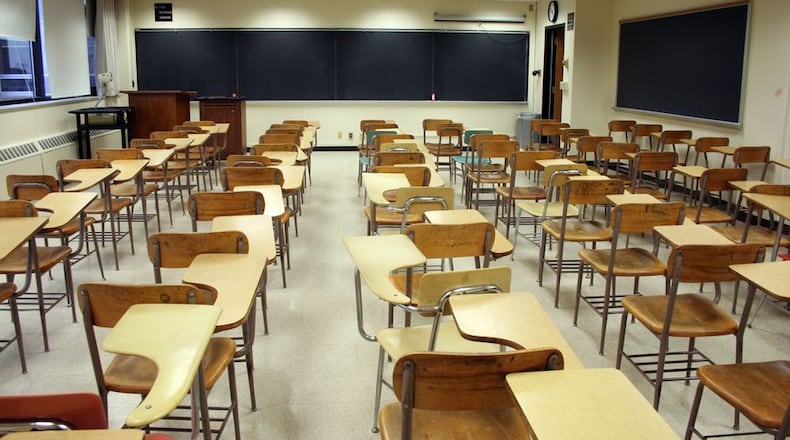Deep in the GOP tax plan overhaul released last week are changes that some education advocates contend advantage high earners and a school choice agenda at the expense of public education and middle-class families.
Among the chief complaints: The expansion of tax-free 529 college savings plans to k-12. Under the tax rewrite, parents would be able to invest up to $10,000 for education-related expenses, including private school tuition.
Investments in 529 plans grow tax-free and are not taxed when used for qualified higher education expenses. Critics allege families who can afford to invest $10,000 a year can already afford private school tuition. "We are disappointed, but not surprised, that Republicans would incentivize wealthy Americans to set aside more resources for private school education in their bill," said the National Coalition for Public Education in a statement.
There's a good discussion of the 529 changes in Mother Jones in which Matthew Chingos, a senior fellow and director of the education policy program at the Urban Institute, says,"If you are trying to save up enough to send your child to a Catholic school for $6,000 a year, the tax benefit on those savings isn't going to be that much. If you know you are going to send your child to a fancy private school in DC that costs $40,000 a year, then you could start stocking money away into one of these accounts and get a pretty big tax benefit. But who's going to get that? It's going to be pretty wealthy people."
The 529 expansion to k-12 expenditures aligns with Education Secretary Betsy DeVos' campaign to provide parents with greater school choice. "529s are a strong and proven tool to help make education more affordable for middle-class families," she said in a statement. "This is a good step forward, reflecting that education should be an investment in individual students, not systems. I look forward to continuing to work with Congressional leaders to ensure all families have equal access to the education that meets their child's unique needs."
(The House Republicans would allow unborn children to be named 529 beneficiaries with language that cites a "child in utero" and "a member of the species Homo sapiens, at any stage of development, who is carried in the womb.")
Another disappointment to educators: To fund corporate tax breaks, the plan eliminates some current deductions, including a $250 tax deduction allowed teachers for the cost of classrooms supplies. This deduction became a permanent part of the tax code in 2015. A survey last year found teachers on average spend $600 of their own money on basic classroom supplies each year.
The tax bill overhaul targets several key higher education benefits, including:
•Americans paying off student loans can no longer deduct interest on those loans.
•Also gone is a tuition tax break for university employees and their families. Now, faculty and staff who get a discount on the cost to send their kids to their college don't have to count those tuition breaks as income. The new plan changes that. Also impacted are graduate students who, in exchange for teaching assistant jobs, get tuition waivers. Those waivers are not treated as income now, but would be under the plan. To see how that might affect a grad student's tax return, check out this Center for American Progress graphic.)
•As the LA Times reports: "The tax bill also would repeal a tax break that helps ordinary families pay for higher education. Interest payable on U.S. savings bonds issued after 1989 is exempt from tax if it's used to pay for university tuition and fees as long as family income is less than $147,250 (for couples). The tax bill eliminates the break. Combined with the repeal of the deduction for interest on student loans, which we covered here , these rollbacks would put more than $45 billion into the pockets of the wealthy, at the expense of university students and teachers."
Teacher groups have voiced opposition to the plan including the National Education Association.
“The tax plan released by House Republican leaders and backed by President Trump is a massive tax giveaway to the wealthiest individuals and corporations funded on the backs of students and working families,’ said NEA President Lily Eskelsen García. “Expanding education tax loopholes in order for wealthy families to stash away money for private school will hurt neighborhood public schools and students. Similarly, as educators spend more and more of their own funds each year to buy basic essentials, Republican leaders chose to ignore the sacrifice made by those who work in our nation’s public schools to make sure students have adequate books, pencils, paper and art supplies."
Here is a video that explains some of this:
About the Author
Keep Reading
The Latest
Featured



